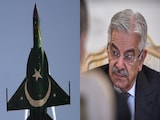In Madhya Pradesh, where the government highlights successes in tribal upliftment and eco-conservation, there has also been an oversight in a key area. An NDTV investigation has revealed that for the past three years, Eco-Development Committees (EDCs) in several tiger reserves and national parks have been deprived of essential budget allocations, causing critical development projects to come to a standstill.
These committees were established to involve local communities, particularly tribals, in wildlife conservation and eco-development initiatives. By doing so, the government intended to serve the interests of eco-conservation as well as the communities through one initiative.
Madhya Pradesh has the highest forest cover in the country - over 25% of the state is covered in forests, which represents 12.38% of the nation's total forest area. Tribals have played a key role in maintaining the forests and they were supposed to get a share of profits from tourism in tiger reserves and natural parks, which have not been given for years.
As part of the investigation, the condition of EDCs in four major tiger reserves - Satpura, Kanha, Bandhavgarh, and Kuno - was examined, revealing a concerning state of affairs.
In the Satpura Tiger Reserve, several EDCs are either inactive or have shut down due to a lack of funding. Residents of Rai Kheda village, who were displaced from the Satpura reserve, said their EDC was dissolved after relocation.
Ashok Singh, a former sarpanch, lamented, "The committee still had funds when it ceased to exist, but no work is being done. We don't even know how much money is remaining."
In Kanha National Park, the management claims to regularly fund its 164 EDCs, with Deputy Director Puneet Goyal stating that the money is used for community development, the promotion of sports among youth, and self-employment training. Documents obtained through Right to Information applications, however, reveal that the committees have not received funds since 2021.
Tribals in the Bandhavgarh Tribal Reserve report that their EDCs have not received funds for up to six years, stalling crucial projects, including one for constructing a boundary around wells to prevent animal accidents.
Dadan Singh Gond, president of the Eco-Development Committee in Bandhadev, said, "No funds have been received for the past four years. Proposals are submitted at every monthly meeting, but nothing is being done. Officials discuss the matter, but no development has taken place."
The situation is equally grim in Kuno National Park, where 25 EDCs were established in 2004 to involve local communities in conservation efforts. Over the years, these committees have received no budget allocations, rendering them practically defunct.
'Will Take Appropriate Action'
The government has responded to these concerns by promising an investigation into the matter. Forest and Environment Minister Ramniwas Rawat said, "I will have this looked into. It is indeed negligence if the funds meant for tribal development have not been utilised, and appropriate action will be taken."
Ajay Dubey, a wildlife activist, pointed out that tribals have played a key role in tiger conservation as well.
"Villagers were displaced to create tiger reserves. Tribals are partners in development, and the government must recognise their role in tiger conservation. A special audit revealed that EDCs have not received their share of profits from tourism for a long time, violating the government's commitments and potentially compromising tiger protection," he said.















